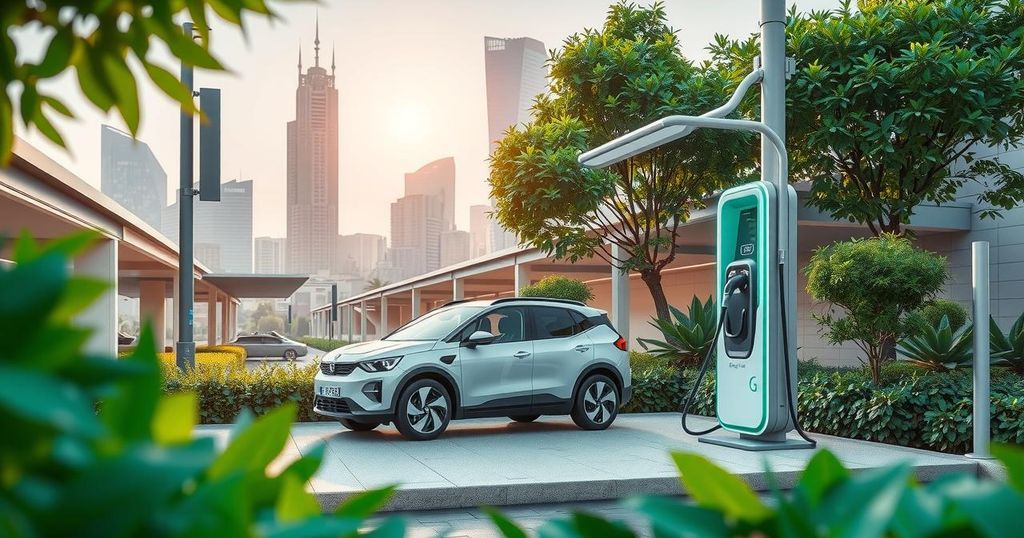Tesla’s Potential Entry into India’s Price-Sensitive EV Market

Tesla is considering entering the Indian electric vehicle market, with recruitment efforts underway in major cities. The company faces challenges from strong domestic competition, higher prices of its vehicles, and road conditions that may require significant adjustments to its cars. However, government initiatives to promote EVs, alongside the growing demand for premium vehicles, could create opportunities for Tesla’s growth in India.
Tesla is poised to potentially enter the Indian market after years of speculation. The electric vehicle (EV) powerhouse has begun recruiting for positions in Delhi and Mumbai, and is reportedly scouting for showroom locations in both cities. The Indian market presents a lucrative growth opportunity for Tesla amidst declining global EV sales and heightened competition from Chinese brands. However, a key challenge resides in tackling India’s price-sensitive customer base.
Currently, Tata Motors dominates India’s EV sector with over 60% market share, followed by MG Motors at 22% and Mahindra & Mahindra. These local brands sell EVs that are significantly cheaper—less than half the price of Tesla’s base model, which starts at around $40,000. Consequently, Tesla’s vehicles may be categorized as luxury items, competing with premium offerings from brands like Hyundai, BMW, and Mercedes.
Price isn’t the only hurdle; India’s diverse road conditions may also complicate Tesla’s entry. Its existing models have low ground clearance, posing challenges for adaptation to local infrastructure. Significant modifications to these vehicles could elevate manufacturing costs, leading to questions about Tesla’s willingness to invest in re-engineering for a market where it could achieve only modest sales volumes.
Despite ambitious governmental efforts to promote electric vehicles, EV sales in India account for less than 3% of overall passenger car sales. Charging infrastructure lags behind, with only about 25,000 stations nationwide. Thus, entering India’s EV market presents a competitive landscape that is both limited and rapidly evolving.
India’s government aims to electrify a substantial portion of its vehicle fleet by 2030, with policies encouraging the adoption of EVs through significant subsidies. Legislative changes have allowed for reduced import duties on electric vehicles above $35,000, incentivizing foreign manufacturers to invest locally. However, foreign companies must also navigate regulations that may favor domestic players in terms of investment levels.
The shift in taxation for EVs is crucial; current duty rates are notably lower than those for traditional combustion vehicles, thus attracting companies like Tesla. While Indian manufacturers express confidence in their competitiveness, the anticipated arrival of Tesla is seen as a potential boost to the local EV ecosystem.
Tesla’s strong brand appeal may resonate with India’s affluent population, adding prestige to owning an EV. However, Tesla’s commitment to establishing local manufacturing in India remains uncertain, as current plans might only involve importing vehicles from its international plants. The future of Tesla’s manufacturing footprint hinges on several factors, including evolving tariff structures and trade negotiations with the U.S.
In summary, Tesla faces significant challenges in entering India’s EV market due to price sensitivity, local competition, and road conditions. While the government is fostering a conducive environment for electric vehicles, effective integration into this market will require strategic adjustments by Tesla. The brand’s prestige may draw affluent buyers, yet a commitment to local manufacturing remains vital for sustainable growth in the Indian automotive landscape.
Original Source: www.bbc.com





